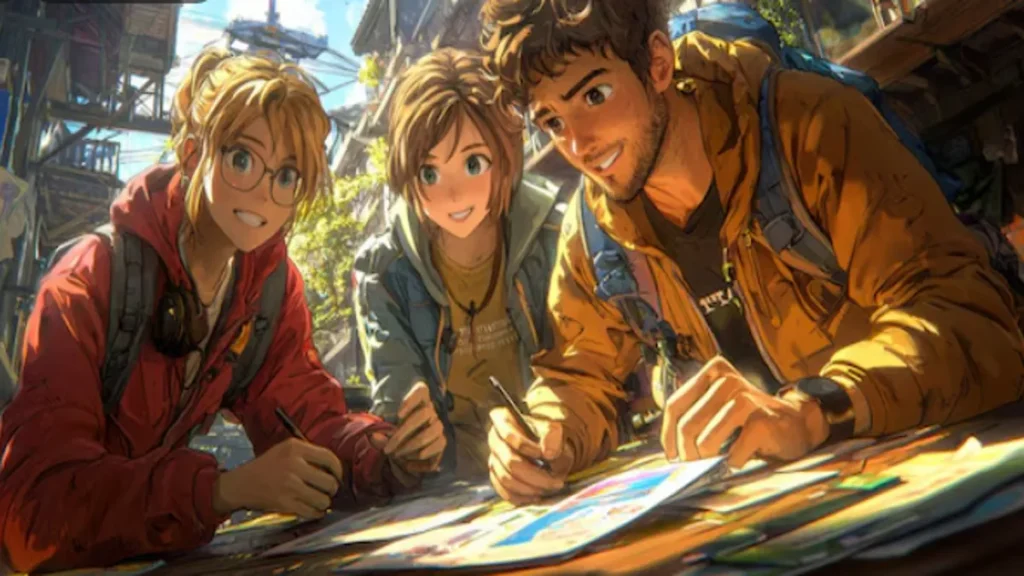When people search for Secret Class manga, they are usually looking for a clear explanation: what is the story about, who are the central characters, and why has it attracted both attention and controversy across the global manga and manhwa community? Secret Class is a Korean manhwa written by Wang Kang Cheol and illustrated by Minachan. Unlike mainstream manga, it falls into the adult-oriented category, blending humor, taboo storytelling, and family drama into an unusual narrative. Though provocative, it is also layered, exploring secrecy, curiosity, and human relationships in ways that fascinate its readers. This article will give you an in-depth 3,000-word analysis of the Secret Class manga, providing the storyline, themes, audience reactions, cultural impact, and future outlook.
The Story of Secret Class Manga
At the heart of Secret’s Class lies the story of Dae Ho, a young man who finds himself caught between innocence and exposure to adult lessons. After losing his parents, Dae Ho goes to live with his uncle and aunt. There, he discovers a world of “secret classes” that revolve around taboo themes, relationships, and forbidden teachings.
Read: 호두 코믹스 2: Understanding the Next Phase of Hodu Comics in the Digital Era
Main Characters:
- Dae Ho: The protagonist, portrayed as naive and curious, trying to navigate adulthood.
- Aunt and Cousins: Figures who introduce him to hidden “lessons,” shaping the core plot tension.
- Supporting Characters: Friends and secondary figures who add humor, secrecy, and conflict.
The manhwa balances explicitness with comedy. Many scenes are designed to feel humorous and awkward rather than dark or grim.
As one fan put it, “The real charm of Secret’s Class isn’t just in the mature content—it’s in the absurd comedy of Dae Ho’s situation.”
Themes in Secret Class
While adult storytelling defines it, Secret Class also explores broader themes:
- Secrecy: As the title suggests, secrecy is the driving force of the narrative.
- Coming-of-age: Dae Ho’s character represents curiosity, innocence, and the transition to adulthood.
- Taboo relationships: Much of the tension arises from inappropriate or forbidden dynamics.
- Comedy: Humor lightens what might otherwise be an overwhelming or problematic premise.
Table: Narrative Structure of Secret Class
| Narrative Element | Description | Impact on Story |
|---|---|---|
| Protagonist | Dae Ho, an orphan discovering adult life | Creates relatability and humor |
| Core Conflict | Forbidden lessons and secrecy | Builds tension and drama |
| Tone | Mix of comedy and explicitness | Broadens appeal |
| Audience Target | Mature readers (18+) | Shapes accessibility and controversies |
| Format | Digital manhwa, scrollable design | Optimized for online consumption |
Quotes About Secret Class
- “Secret’s Class is both comedic and controversial—it thrives on the very taboos that many avoid.” — Cultural analyst
- “The story isn’t high literature, but its honesty about awkwardness is strangely refreshing.” — Manga reader
- “It challenges how we define manga and manhwa genres in the digital age.” — Media scholar
- “The humor makes it palatable; otherwise, the taboo themes might overwhelm.” — Fan comment
Read: 호두 툰: Decoding the Digital Comic Platform and Its Cultural Significance
Audience Reception
Readers approach Secret’s Class manga with varied motivations.
- Curiosity: Its taboo marketing generates immediate intrigue.
- Drama and Humor: Despite explicit content, its comedic tone keeps readers engaged.
- Community Belonging: Online forums are filled with debates, memes, and discussions about favorite chapters.
- Escapism: For some, it offers light entertainment outside mainstream manga.
A reader described it: “I didn’t expect to laugh as much as I did—it’s a guilty pleasure, but entertaining.”
Controversies Surrounding Secret Class
Like many adult-oriented works, Secret Class has been the subject of debate.
- Censorship: Many platforms restrict or remove it due to explicit themes.
- Ethical concerns: Critics argue that its family-related taboos cross uncomfortable boundaries.
- Cultural backlash: Some societies consider it unacceptable, while others treat it as entertainment.
- Age restrictions: Ensuring it stays within adult-only spaces remains a major challenge.
A media critic said, “The controversy around Secret‘s Class reflects society’s discomfort with taboos more than the work itself.”
Artistic Style of Secret Class
The artwork is polished, colorful, and consistent with manhwa standards.
- Bright coloring creates an inviting aesthetic.
- Exaggerated expressions emphasize comedy.
- Digital-first design fits smartphones and webtoon platforms.
This makes Secret Class visually accessible even to casual readers.
Secret Class vs. Other Adult Manga/Manhwa
| Feature | Secret Class | Typical Adult Manga |
|---|---|---|
| Origin | Korean manhwa | Japanese manga |
| Tone | Comedy + adult content | Often more serious or dark |
| Art | Full-color, scroll format | Usually black-and-white print |
| Themes | Family secrecy, humor | Romance, fantasy, dystopia |
| Global Reach | Rapid online expansion | Traditional publishing networks |
Cultural Impact of Secret Class
Despite its controversies, Secret Class has become a recognizable name in discussions of digital adult manga and manhwa.
- In Asia: It reflects the growth of Korean manhwa in competing with Japanese manga.
- In the West: It sparks debates about censorship, freedom, and responsible consumption.
- Globally: It highlights how digital-first platforms give rise to niche successes.
As one cultural researcher said, “Secret Class is a case study in how online ecosystems make space for unconventional storytelling.”
Future of Secret Class Manga
The future of Secret Class will depend on evolving digital platforms and reader demand.
- Continuation: Given its popularity, more chapters or spin-offs are likely.
- Adaptations: Animated or alternative media forms could be explored, though controversies may limit them.
- Technology: VR or AI-driven manga consumption could change the reading experience.
- Regulation: Stronger age restrictions may affect availability.
Conclusion
Secret Class manga is more than just a provocative title—it is a digital phenomenon that mixes humor, taboo, and adult storytelling. It answers the searcher’s intent by clarifying its story, characters, and themes, while also addressing its controversies and cultural context. For some, it is guilty-pleasure entertainment; for others, it is an example of how manhwa pushes boundaries in the digital age.
Its legacy will likely remain tied to debates around freedom, censorship, and the role of taboo in art. But regardless of perspective, Secret Class demonstrates how even controversial works can spark conversations, redefine genres, and create global communities.







